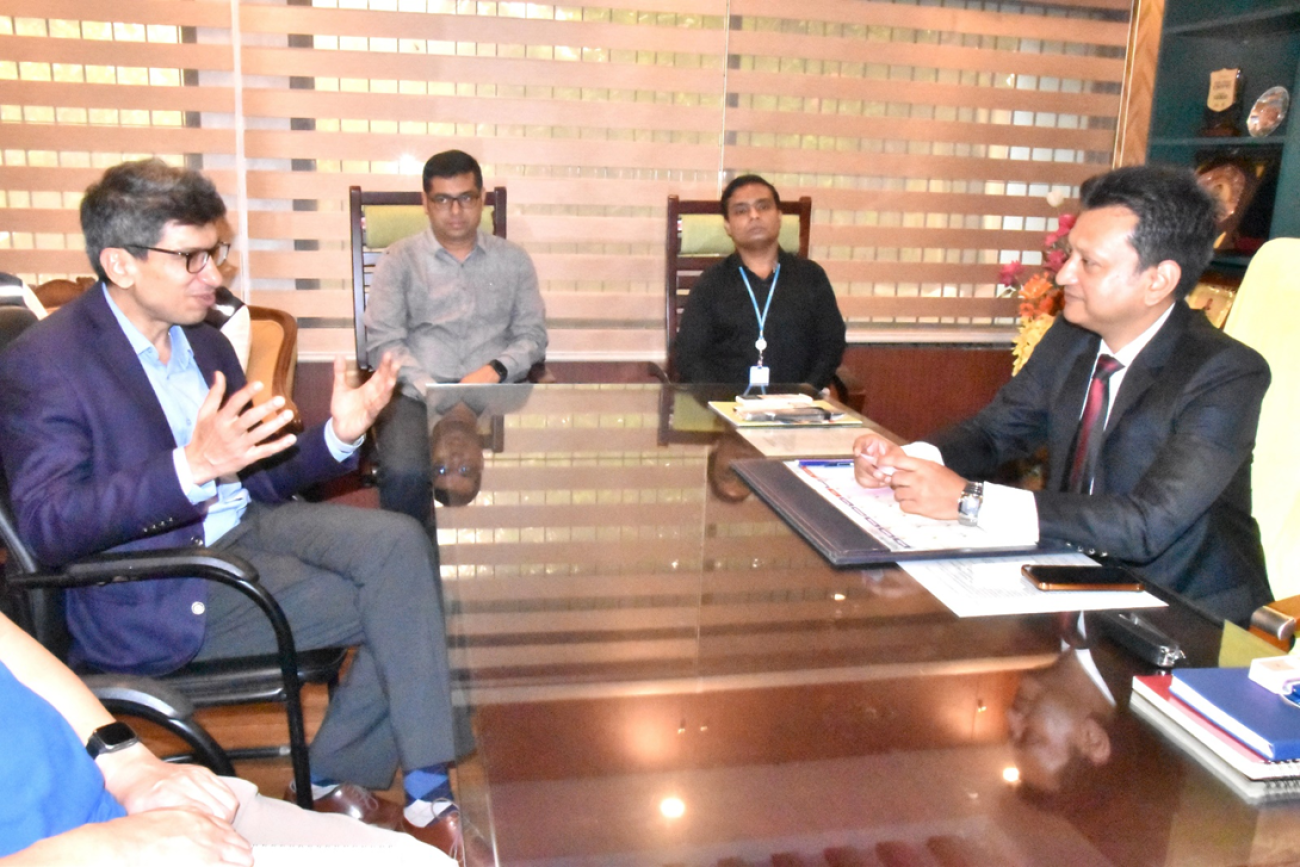WHO Deputy Representative to Bangladesh Strengthens Collaboration and Support in Cox’s Bazar

WHO Deputy Representative (Deputy WR) to Bangladesh, Dr Rajesh Narwal, visited Cox’s Bazar from October 2 to 3, 2024, to engage with health partners and observ
During the visit, Dr Narwal engaged in productive discussions with key government partners in Cox’s Bazar, including the Civil Surgeon and Superintendent of 250 bed Sadar District Hospital. The Civil Surgeon expressed satisfaction with WHO’s activities and a strong willingness to continue the collaboration. He also extended gratitude to WHO for their support to establish a dedicated Health Emergency Operations Centre (HEOC) at the Civil Surgeon’s Office.
The HEOC, at the Civil Surgeon’s Office in Cox’s Bazar, serves as a central hub for coordinating multi-hazard preparedness and responses to acute public health incidents and threats. It provides essential leadership and coordination for all emergency preparedness and response activities related to the Rohingya and host populations in Cox’s Bazar District, playing a crucial role in mitigating public health hazards and ensuring effective preparedness and response actions throughout the district.
“The collaboration with WHO has been instrumental in enhancing our capacity to respond to public health challenges. Their unwavering support has been invaluable. We look forward to continuing this partnership to ensure the health and well-being of both the host and Rohingya,”– Dr Asif Ahmed Howlader, Civil Surgeon Cox’s Bazar
Dr Rajesh Narwal visited several health institutions supported by WHO under the Health and Gender Support Project (HGSP). This project, led by the Ministry of Health and Family Welfare and funded by the World Bank, aims to improve access to and utilization of Health, Nutrition, and Population (HNP) services, as well as addressing the Gender-Based Violence (GBV). It serves both, the host communities and the Rohingya population. Key objectives include enhancing Non-Communicable Diseases (NCD) service delivery, providing technical and logistical support for Healthcare Waste Management (HCWM), expanding laboratory services, ensuring safe blood transfusions, and strengthening the WHO Early Warning Alert and Response System (EWARS). Dr Narwal also discussed the mechanisms for sustainability of the program once it concludes.
“Our visit to Cox’s Bazar has been profoundly enlightening. Witnessing our partners' dedication and the communities' resilience reaffirms our commitment to strengthening health systems and ensuring that every individual, regardless of their circumstances, has access to essential health services. We are building a healthier, more resilient future for all,” – Dr Rajesh Narwal, Deputy WR Bangladesh.
During the visit, Dr Rajesh explored the NCD corners, the Waste Management units, and the blood transfusion centres at the Ukhiya Upazila Health Complex and the 250-bed Sadar District Hospital. The itinerary also included a tour of the IRC ‘Integrated Health and Nutrition facility’ in Camp 11 and the BRAC ‘Primary Health Care facility’ at Camp 13 which was recently established as a Hepatitis C treatment centre in collaboration with WHO.
“The resilience and determination of the communities in Cox’s Bazar inspire us every day. Our collaborative efforts with local health authorities and partners are crucial in addressing the complex health challenges faced here,” – Dr Jorge Martinez, Head of Cox’s Bazar Sub Office.
The visit of the WHO Deputy Representative to Cox’s Bazar reaffirms WHO’s unwavering commitment to supporting health initiatives in the district specially for Rohingya population. By engaging with local health leaders and observing the impactful work being done on the ground, the visit has paved the way for strengthened partnerships and enhanced collaborations. WHO, working closely with the local health authorities, key partners and communities, remains dedicated to providing the necessary technical support to uphold and advance these vital health initiatives.


